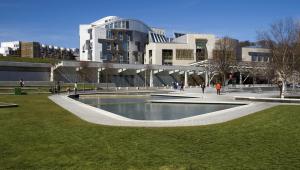The major parties promise more local power, but what they mean is devolution to the community, not councils. Either way, the localism debate has been reignited
Those who believe that local government has become unwieldy, unresponsive, out of touch and a contradiction in terms might have initially welcomed an apparent localist conversion on the part of the Conservative leadership.
David Cameron has committed to setting councils free, with an unprecedented level of devolution from Whitehall to town hall. Senior Tory councillors have countered detractors by insisting that their party leader is not making wild promises from the luxury of opposition. ‘He really does mean it,’ some insisted after citing Cameron’s plan to give councils a new ‘general power of competence’. The Tory leader handily decoded his commitment with this mind-boggling explanation: ‘They can do anything they like as long as it’s legal.’
Last week one of Cameron’s main lieutenants, shadow schools secretary Michael Gove, reinforced this pledge by claiming that a Tory government would give councils ‘significantly’ more power. He then told the BBC that Margaret Thatcher was ‘wrong in the way she starved local government of power’.
The problem with these fine sentiments is that they collide with other Tory proposals. Courtesy of Gove, local education authorities will be further undermined with plans to let parents set up free-standing community schools. In practice, these would probably be run by existing academies and private education companies rather than by mum and dad.
Then there’s the bold vision of a ‘Big Society’. As Cameron explained this week, it is aimed at ‘breaking open public services to new providers, unleashing the forces of innovation’. The state would mobilise an army of community organisers to recruit people on the ground to ‘get stuck into neighbourhoods’ (his own words). In this brave new world, it is tempting to join the ranks of sceptics and commentators who think it’s all a covert Tory ploy to drastically reduce the power of government, local and national.
Where, they ask, is the evidence that people want to assume the role of community champions, enablers and, collectively, service providers? The obvious rejoinder is that necessity – in the form of savage cuts next year to many frontline public services – could be the mother of creativity in communities.
Let us be clear. It is not just the Tories facing both ways, spouting seemingly contradictory messages and floating new ideas to give ‘communities’ – rarely ‘councils’ – greater control over local services and public assets. In varying degrees, all three main parties in England seem to proclaim the virtues of local government on the one hand while, on the other, calling for a strengthening of ‘local democracy’ and ‘community empowerment’. Language is important.
Across the parties, we could be witnessing a redefinition of the role of local ‘governance’, in which councils might be just part of a larger democratic framework embracing health, policing and other vital community services.
Labour is hung up on ‘choice and voice’ and its corollary – yes – stronger communities. Ditto, the others.
Cameron’s talk of ‘mass engagement’ is hardly original. It’s not that long ago, after all, that the former local government secretary, Hazel Blears, produced the Communities in control white paper. In a 2003 Fabian Society booklet of the same name, she called for a national citizen participation agency to push both community governance and mutualism – long before Cameron jumped on this bandwagon. Conservatives want directly elected police commissioners. The Liberal Democrats want directly elected police authorities and, possibly, NHS trusts. Privately, senior Labour figures accept that policing and health services need to be made more accountable. The Tories are unclear about NHS governance.
In this debate, councils are naturally defensive. The Local Government Association fears direct elections to police authorities and health trusts will weaken town halls. Its outgoing Labour group leader, Sir Jeremy Beecham, last week urged the association to remain united in supporting the role of councils as community leaders and as the institutions with ‘democratic legitimacy’.
Should we be worried? Maybe not. A new local framework, in which community control in some areas is matched by direct elections to bodies from councils to health trusts to police authorities, might be just the thing to breathe fresh life into a moribund local democracy. Let the debate begin.
Peter Hetherington writes on community affairs and regeneration











